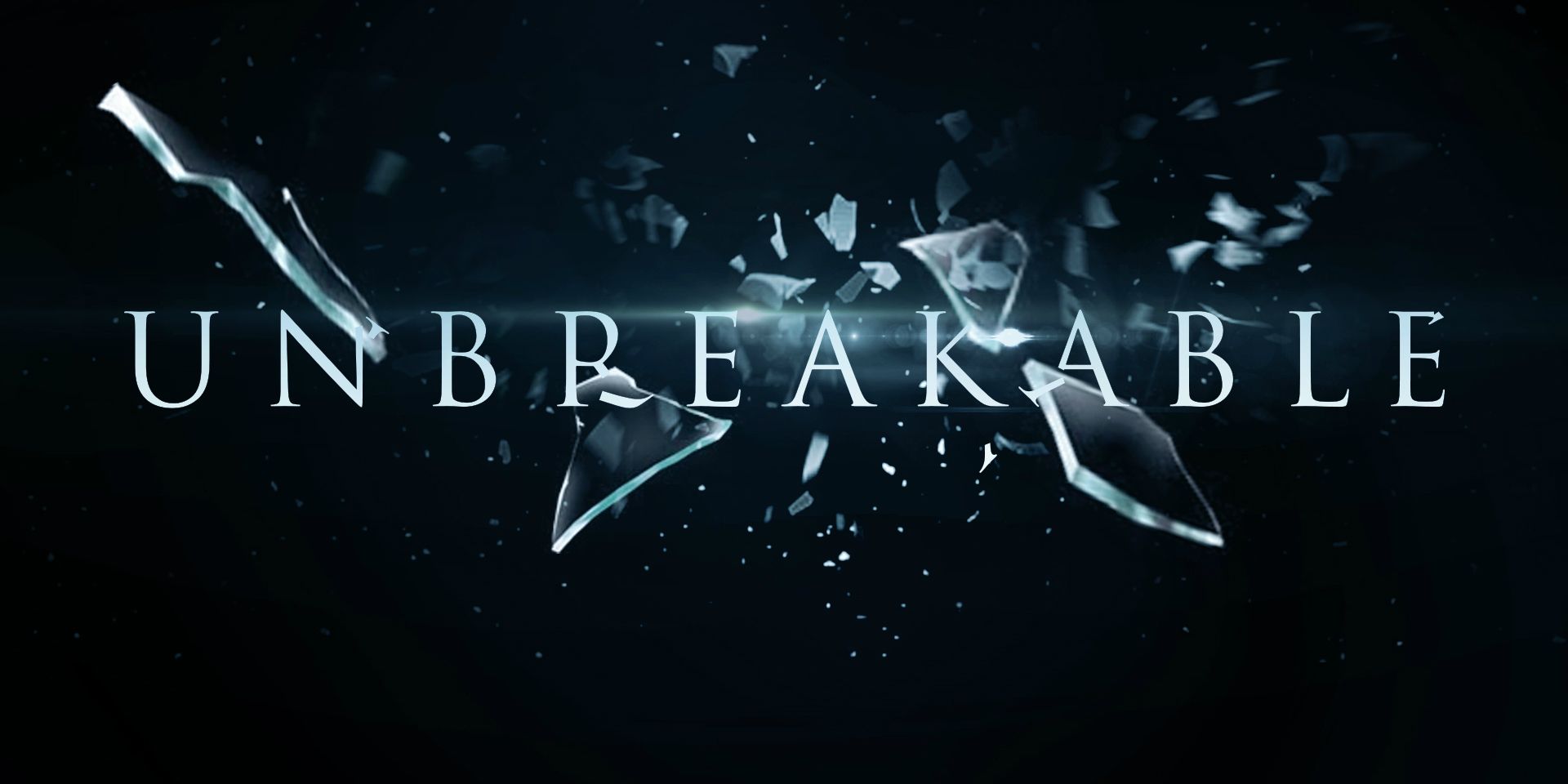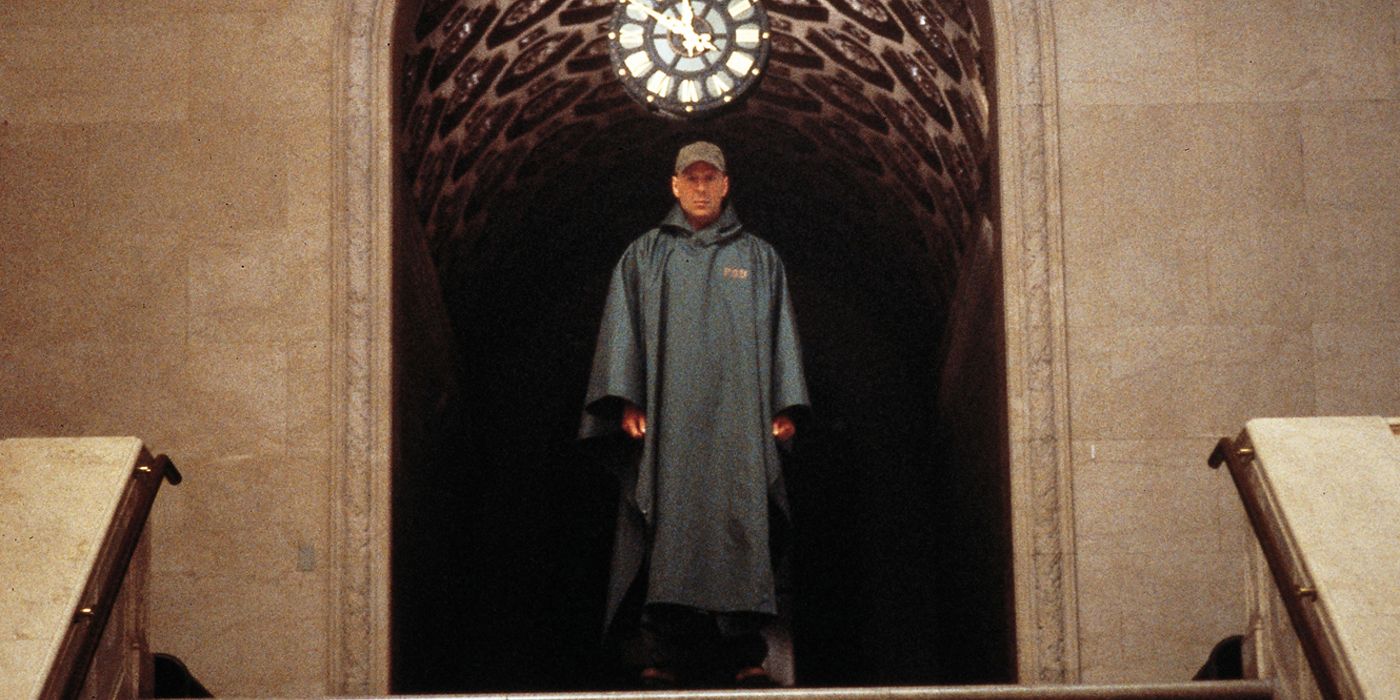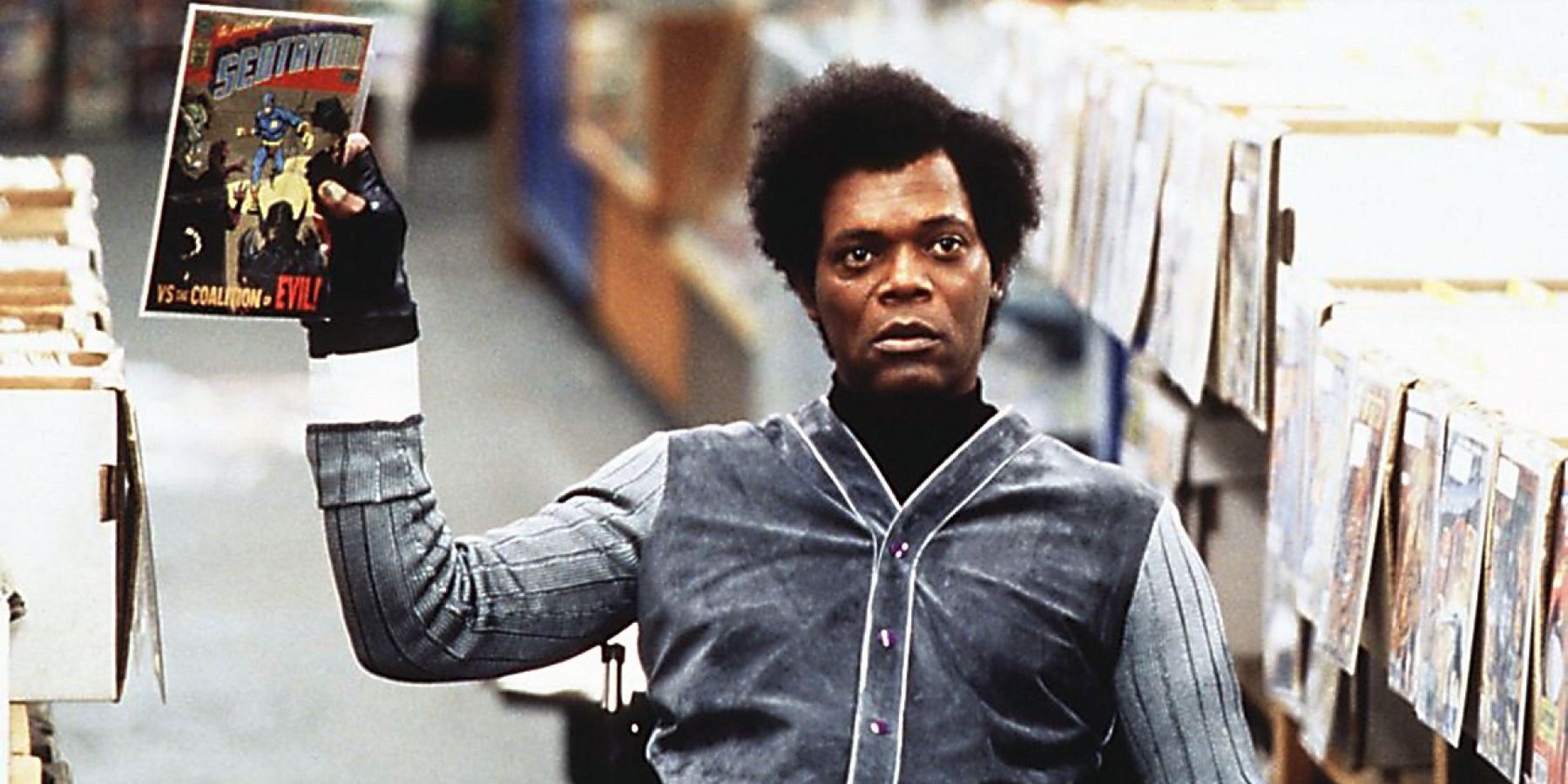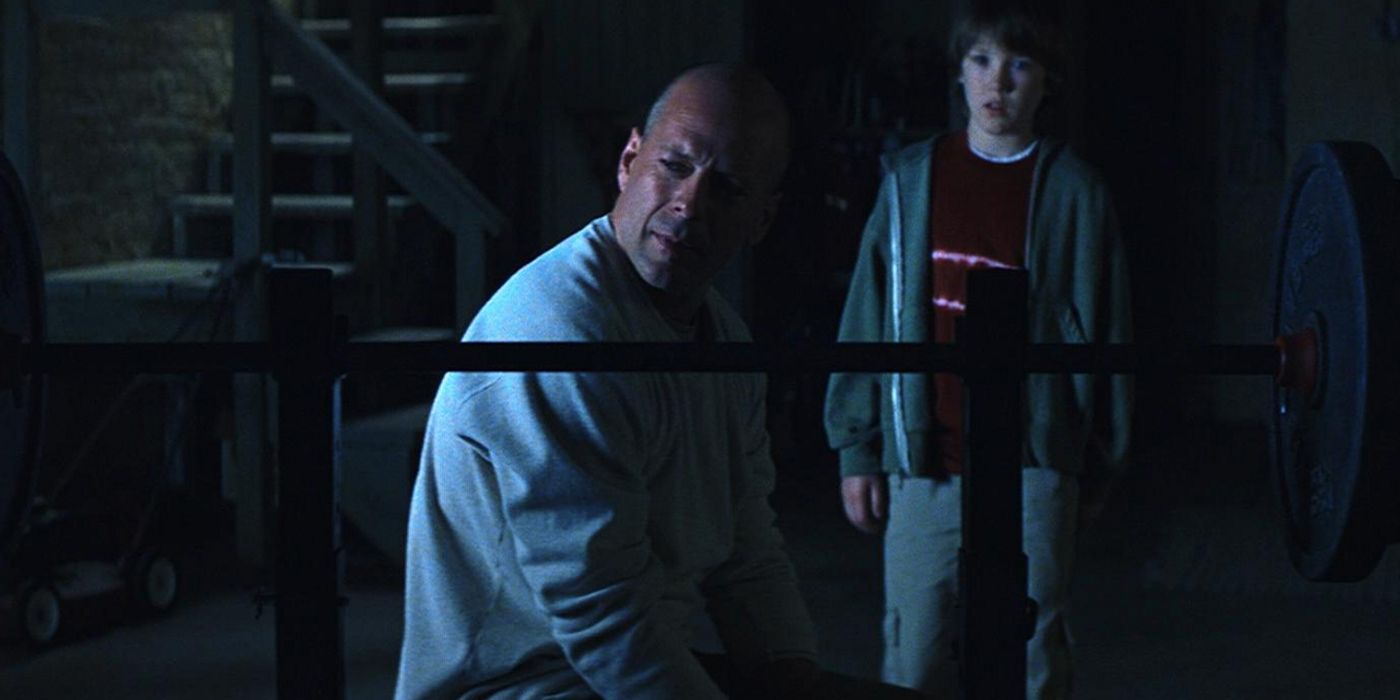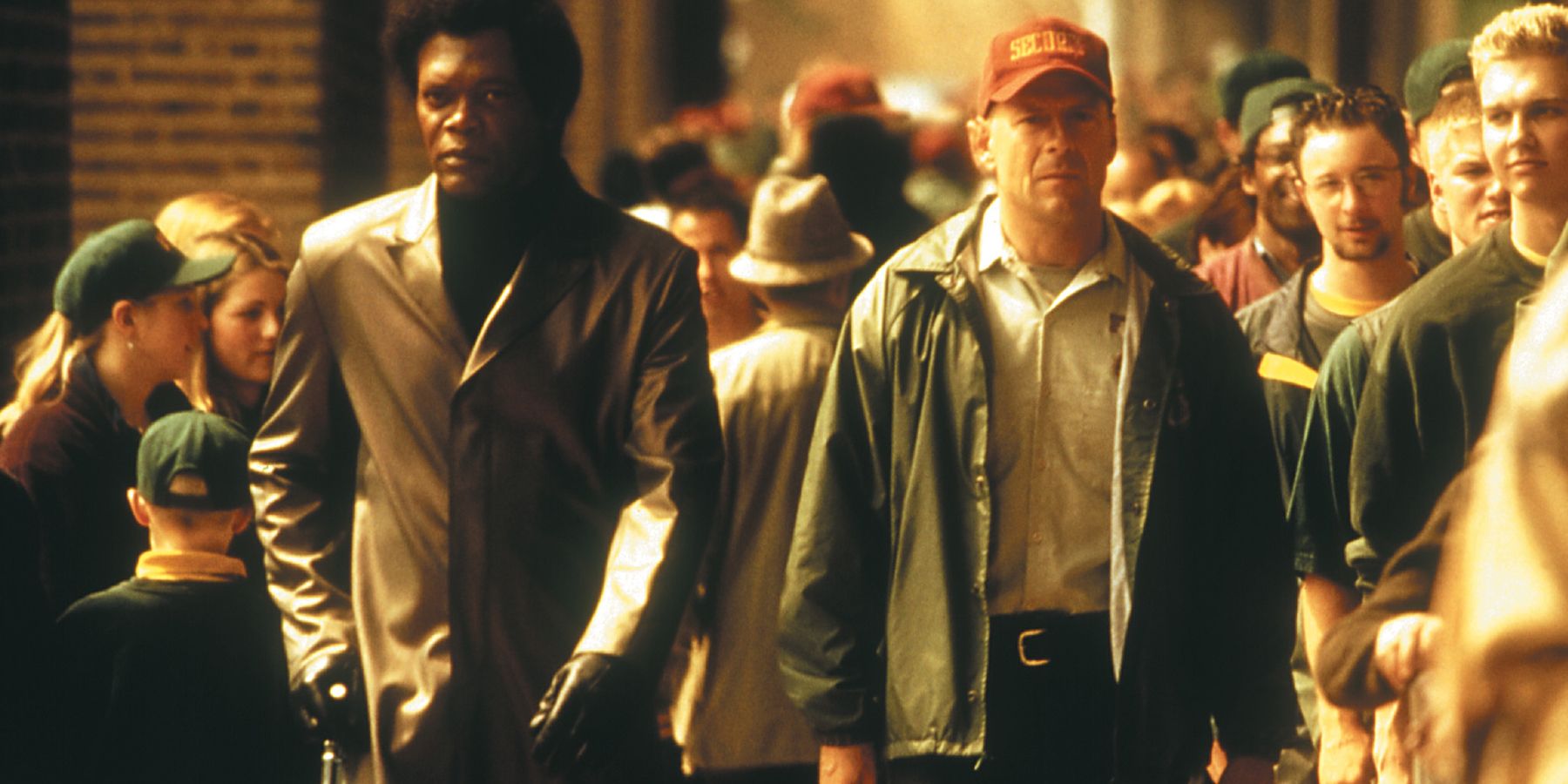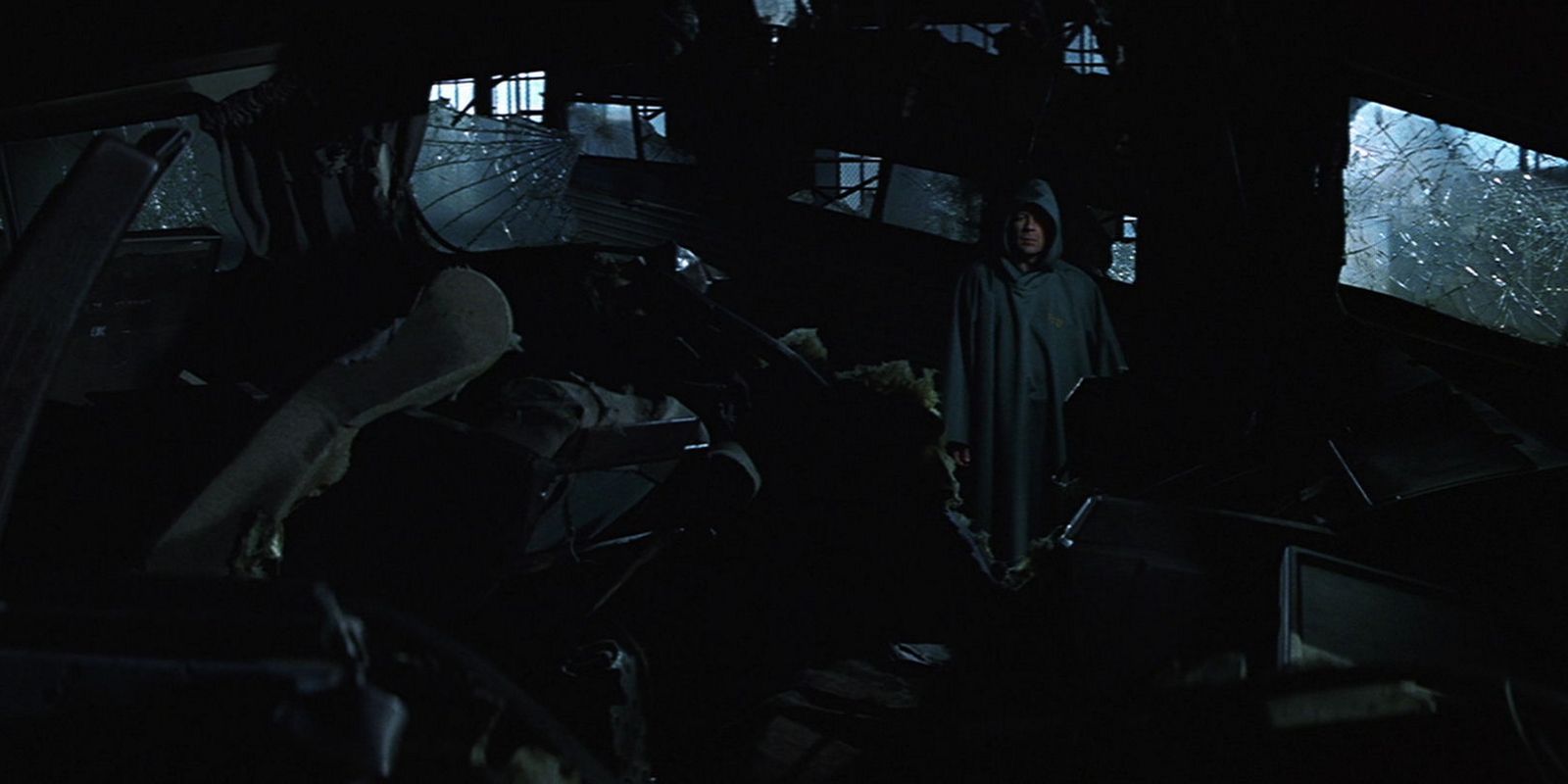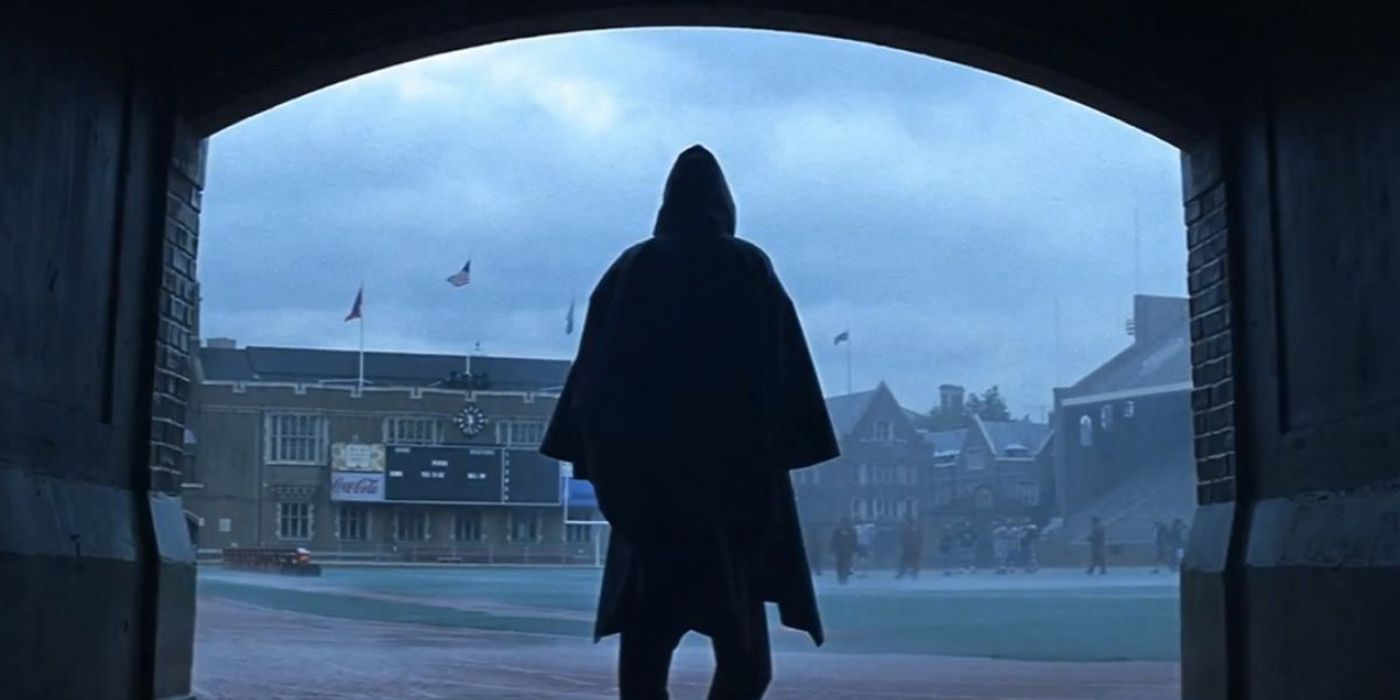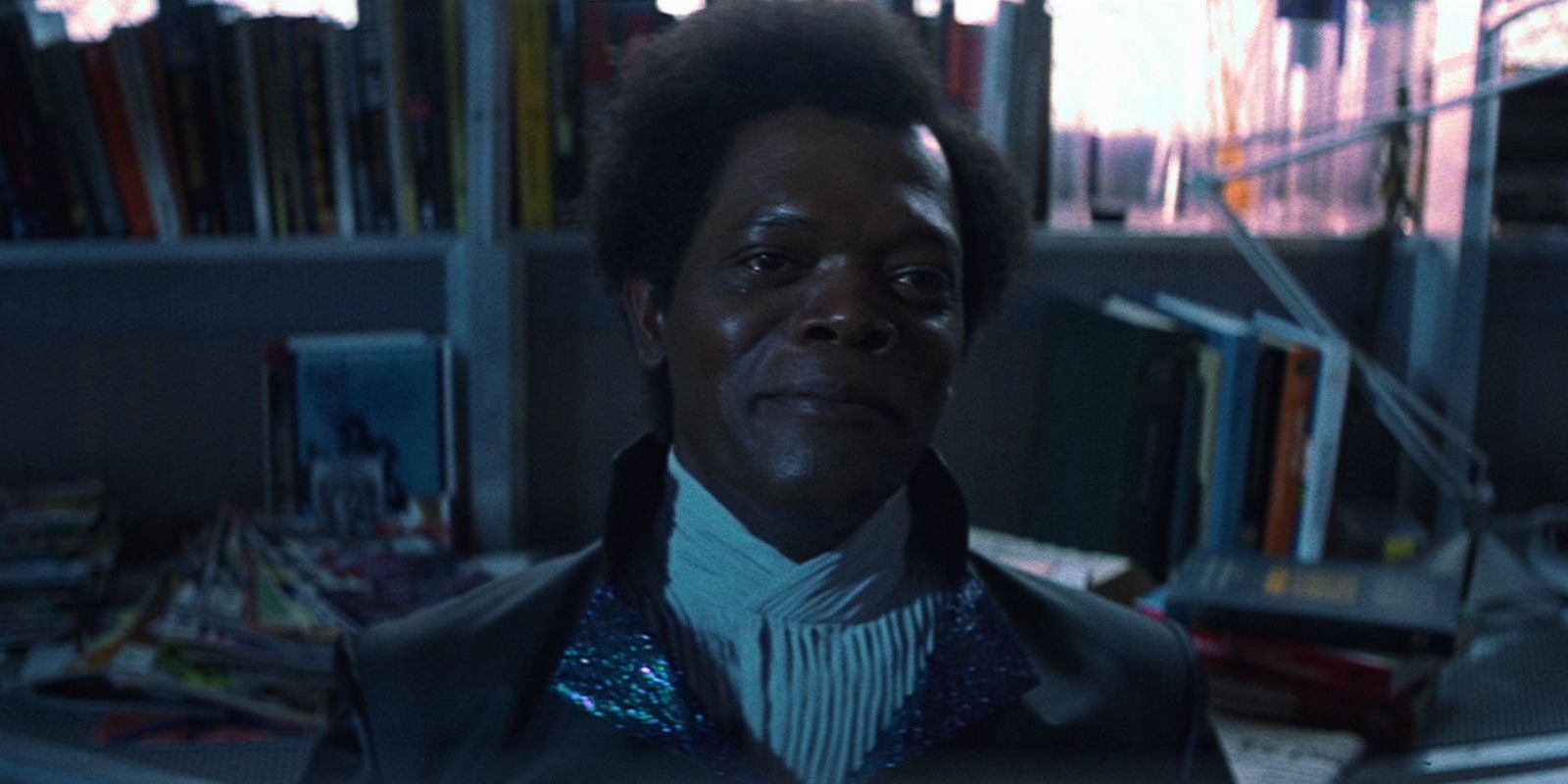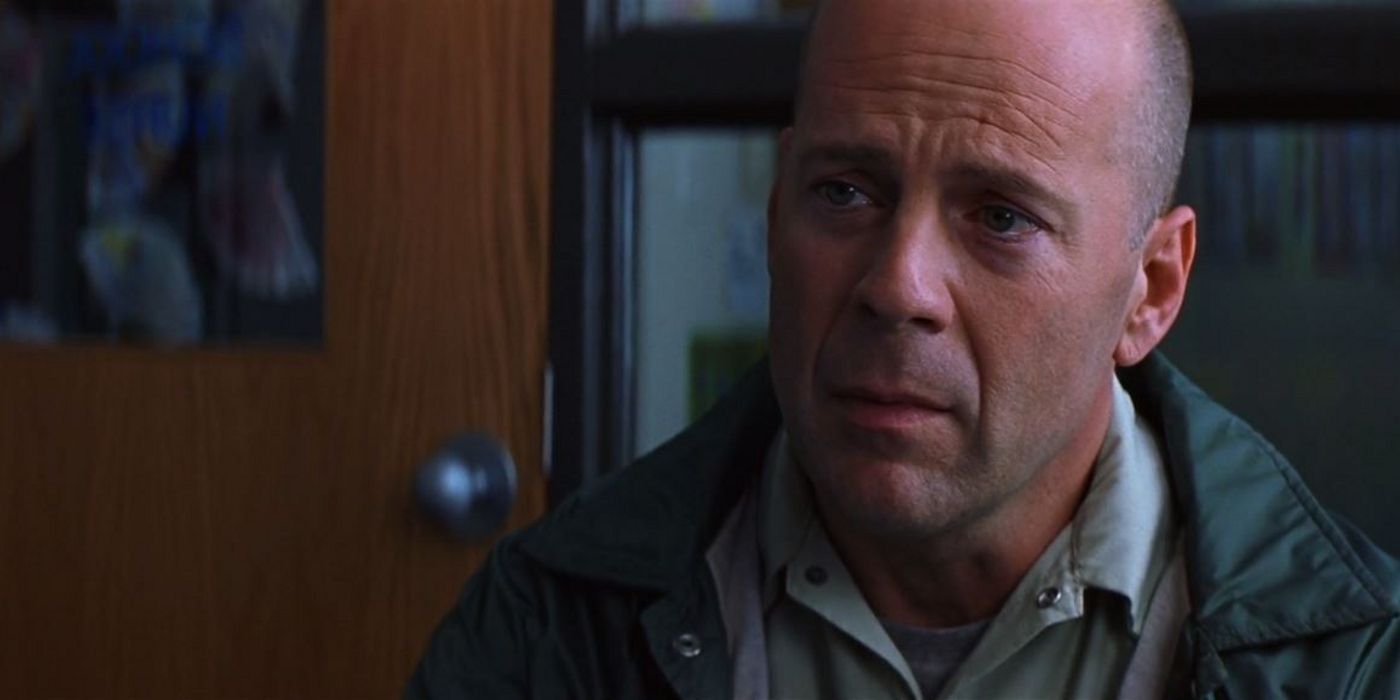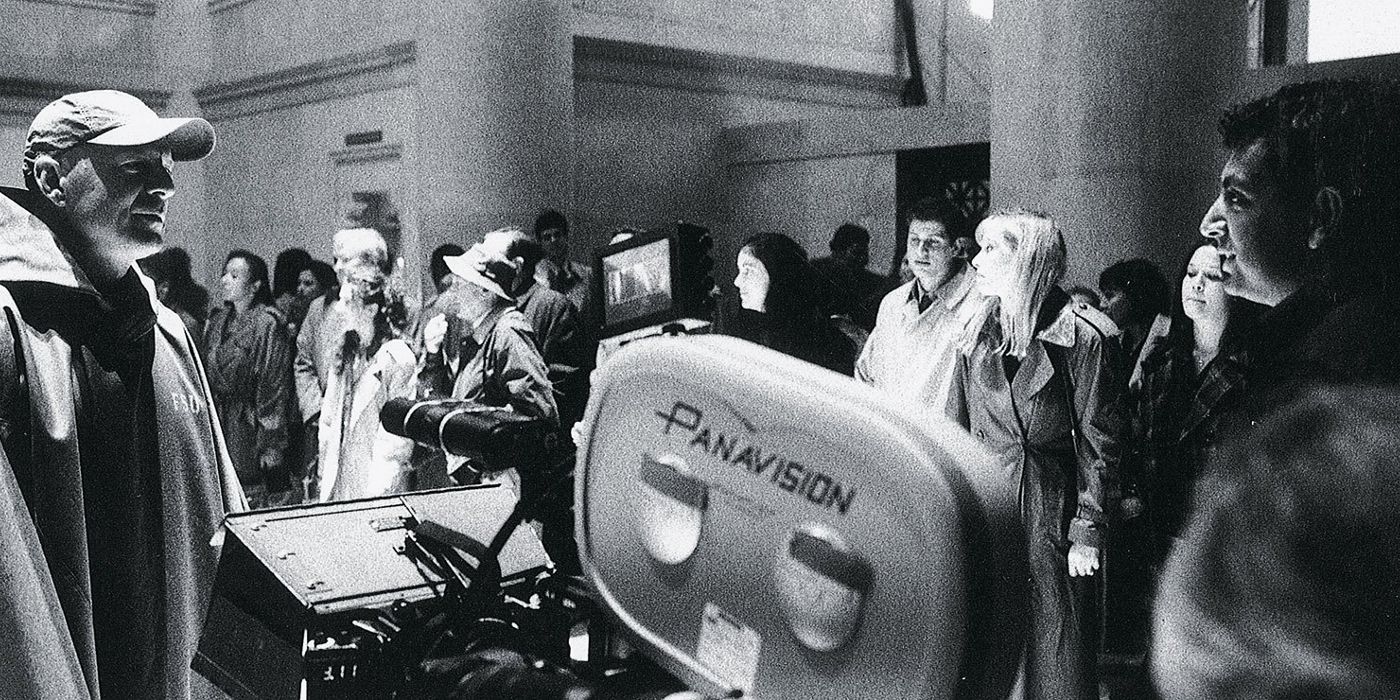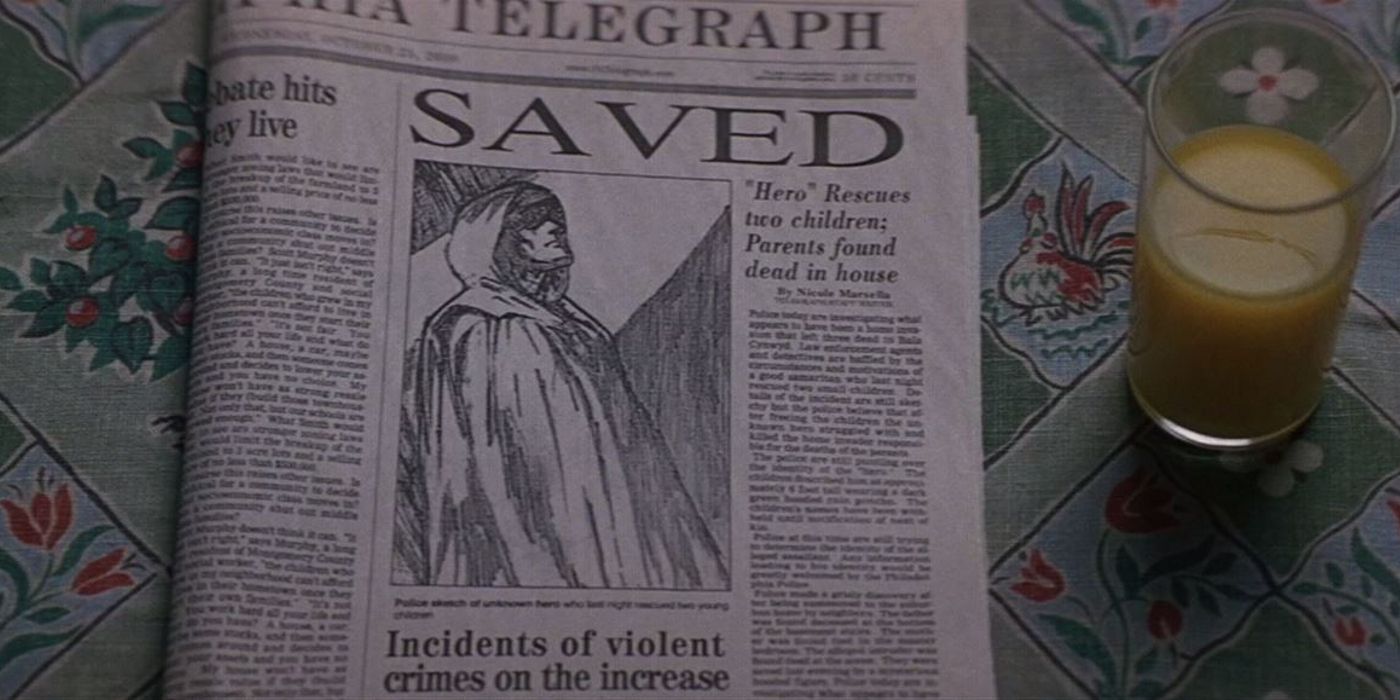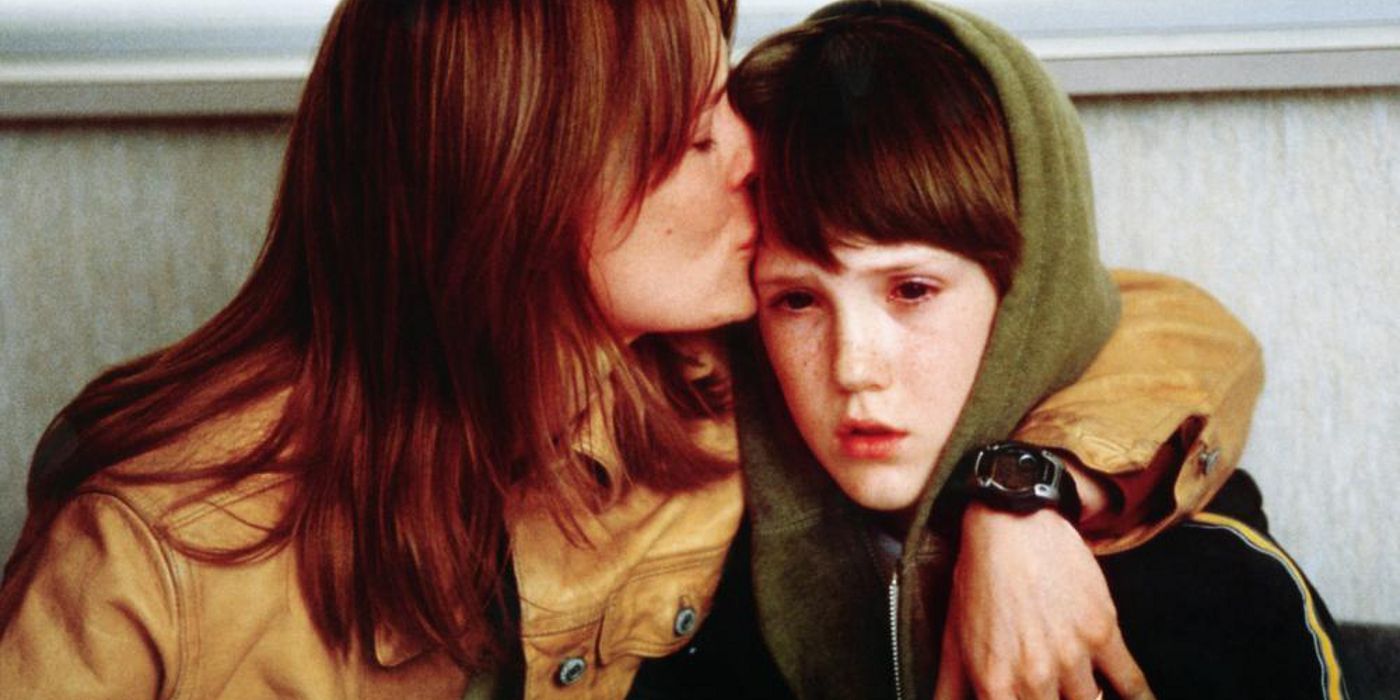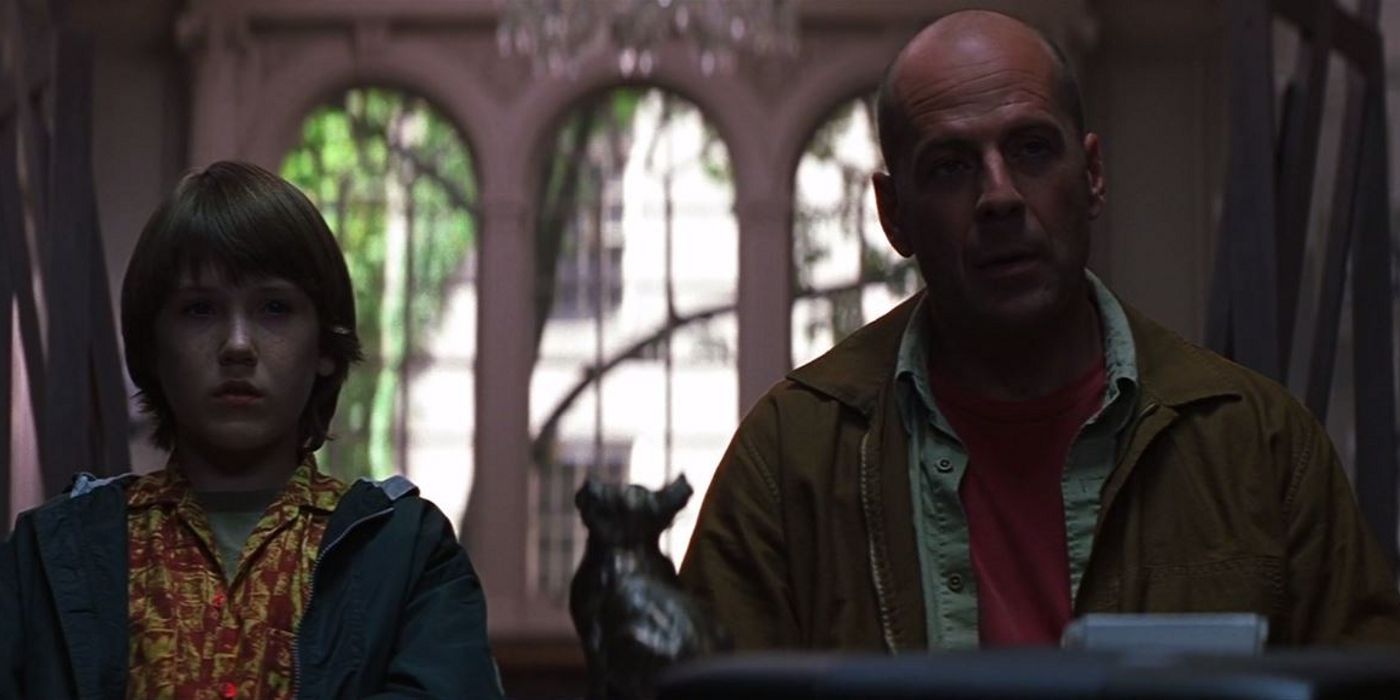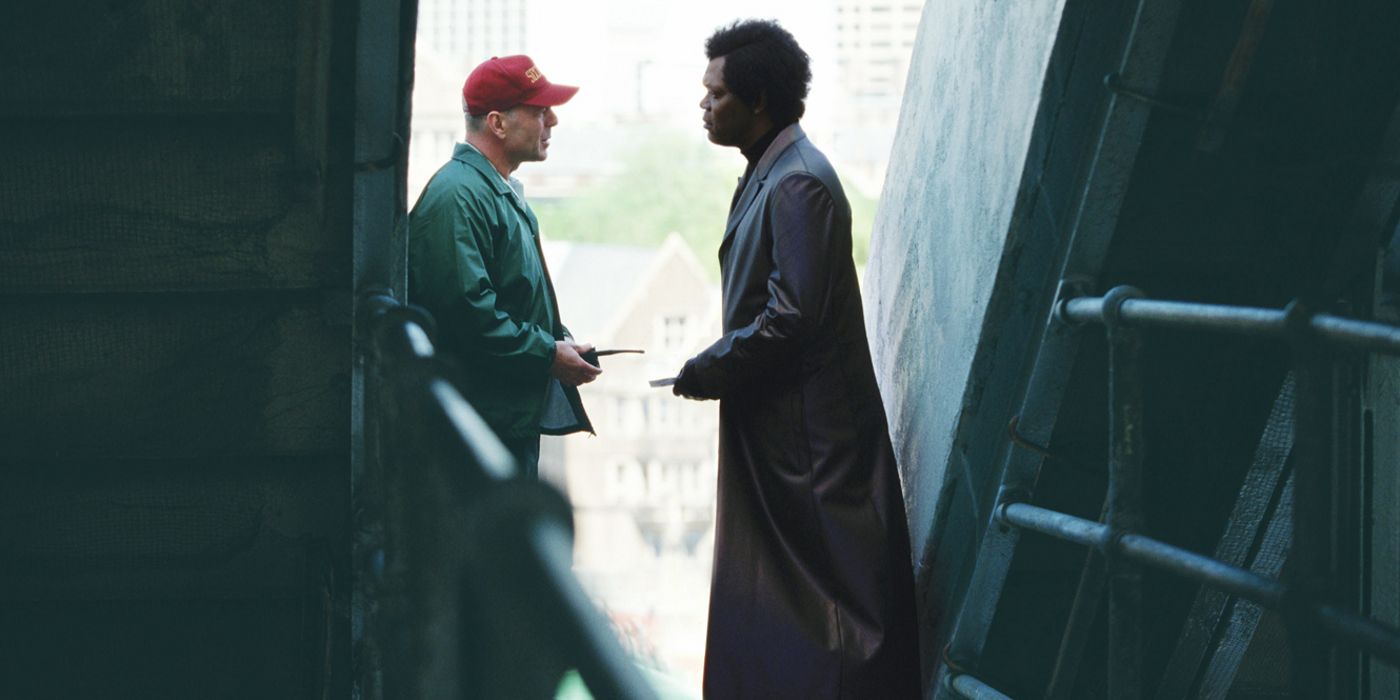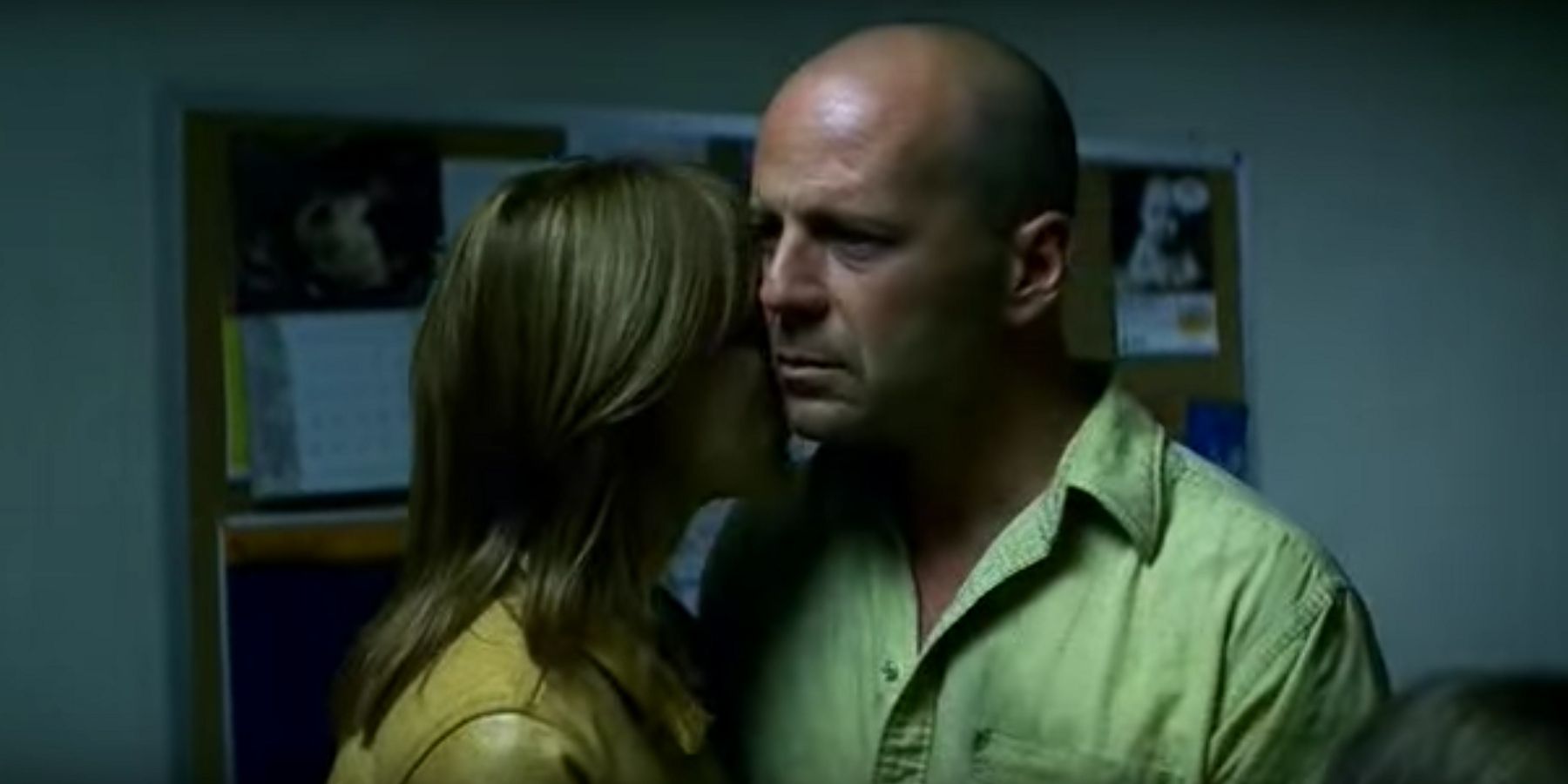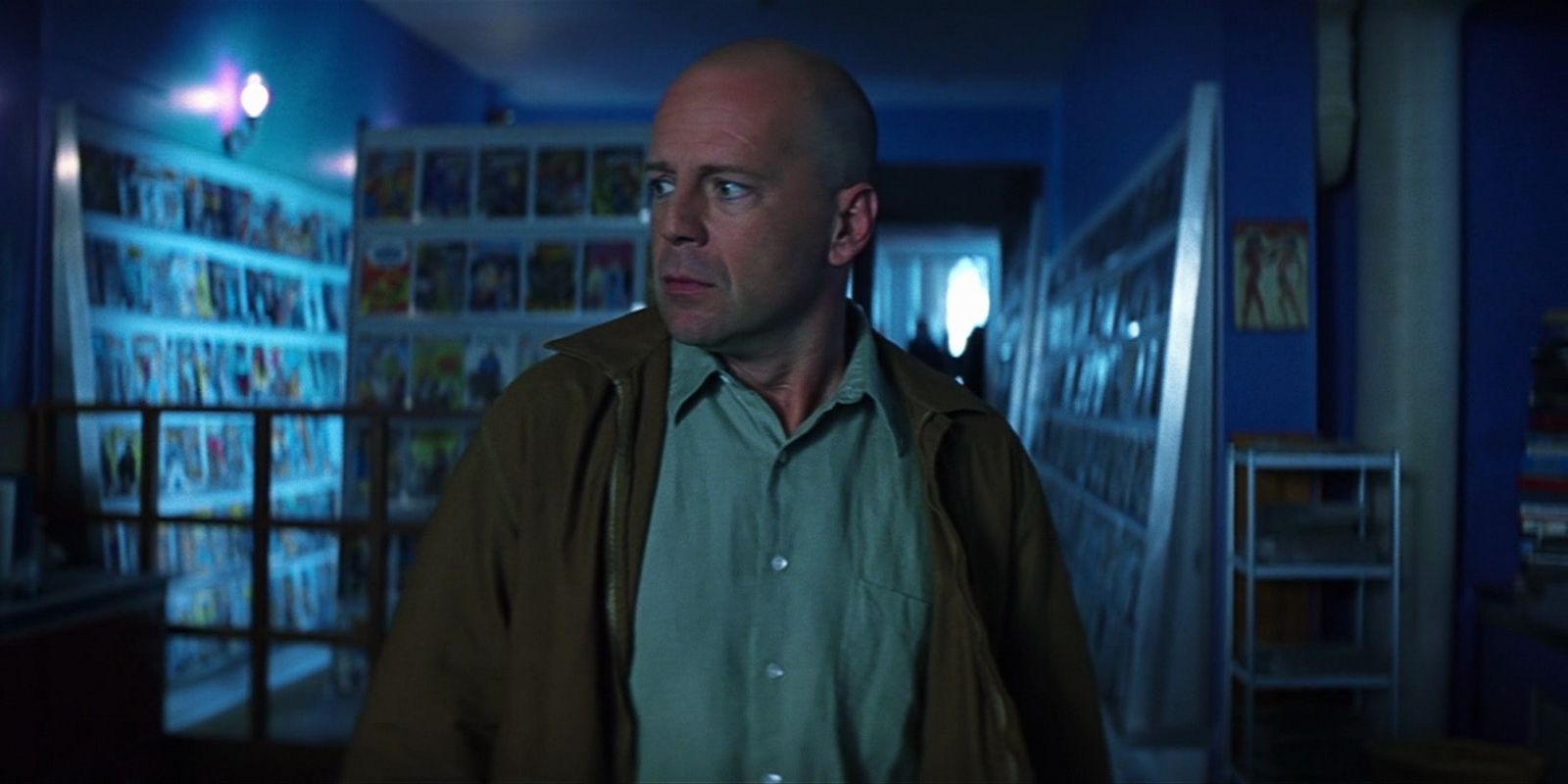"Unbreakable" came out at a time when superhero movies weren't the guaranteed money-making blockbusters that they are today. M. Night Shyamalan was fresh off of six Oscar nominations for "The Sixth Sense" and everyone wanted to see what he was going to do next. "Unbreakable" was an underrated superhero origin story about a man named David Dunn who discovers he's unbreakable after surviving a horrific train crash, but it's just as much the story of Elijah Price, the man who helps Dunn discover his newfound destiny, and in the process, discovers his own.
RELATED: Guardians Of The Galaxy: 15 Ways It Changed The MCU
Last year, M. Night Shyamalan gave us "Split," which was revealed to take place in the same universe as "Unbreakable," and recently, Shyamalan announced that his next film, "Glass," will be a sequel to "Unbreakable," 19 years after the first, with Bruce Willis, Samuel L. Jackson and James McAvoy all returning. In light of this news, we're looking back at 15 reasons why "Unbreakable" is the best superhero origin movie of all-time.
15 UNPRECEDENTED AT THE TIME AND INFLUENTIAL EVEN TODAY
Back when "Unbreakable" came out, the world didn't look on the superhero genre kindly. "X-Men" had become a surprise hit only a few months before, and Sam Raimi's "Spider-Man" was still two years away. Fans of "The Sixth Sense" questioned whether M. Night Shyamalan could capture lightning in a bottle twice, and while many of his films have been less appreciated through the years, most agree that "Unbreakable" was a worthy follow-up to Shyamalan's first hit film.
No superhero film up to that point had attempted to portray a hero who was a relatable human being with life problems, flaws and borderline depression. "X-Men" featured ultra-powerful heroes and villains that were a regular part of the world, and the same was true for the "Superman" and "Batman" franchises. In contrast, David Dunn existed in a very real world where superheroes would not be easily accepted as fact. This new take opened the door for movies like "Batman Begins" and even "Iron Man" that featured flawed people, becoming heroes in a realistic world.
14 EMBRACED COMIC BOOKS AT A TIME WHEN THEY WERE LOOKED DOWN UPON
One reason superhero movies weren't often embraced by studios or audiences is that an interest in reading comic books came with a fair amount of social stigma. They were seen as a medium that only appealed to kids and immature people. "Unbreakable" actually addresses this stigma in the first scene featuring Samuel L. Jackson's Elijah Price. Price owns a gallery featuring classic comic book prints and early drawings. He gives a very poetic description of a piece to a customer, who then announces that his four-year-old son will love it. Elijah kicks him out, announcing that he runs an art gallery.
Elijah, who spent most of his life in a hospital bed, found meaning in comic books, that they were just a slight exaggeration of the real life truth, that some people were put on this Earth to protect others. This was a welcome statement for actual comic book readers who, at the time, often felt the need to hide their interest from peers. Comic books play a crucial role in the development of each character and the plot. It may have been a slightly out-there concept for general audiences, but this was a love letter to comic readers.
13 A "GROWN-UP" SUPERHERO MOVIE THAT DOESN'T TRY TO BE DARK AND GRITTY
A lot of modern superhero films have attempted to copy the general formula of "Unbreakable" to make a "grown-up" superhero movie in a realistic world. The reason why it tends to not track as well with audiences is because studios, writers and directors often seem to think that "mature" specifically means "dark" and "gritty" or even "bleak." The gritty reboot sub-genre has become kind of an in-joke among moviegoers with movies like "Man of Steel" and the new "Fantastic Four" reboot; superhero comic book movies, which once carried a message of hopefulness, turned into grim and depressing films.
"Unbreakable" doesn't rely on any of these things. The story starts off in a bleak place, with David's marriage on the brink of divorce and his life circling a drain of depression, but it actually becomes a story of hope and self-discovery. The crime and the criminals are very much realistic, but the main characters aren't ever unnecessarily grim and they don't seek violence for violence's sake. Even Elijah, who turns out to be more nefarious than he lead on, only commits his acts of terrorism in an attempt to find his opposite, the hero.
12 THE VILLAIN IS TRAGIC, THE HERO IS FLAWED
One of the great strengths of "Unbreakable" is that it takes the typical archetype of heroes and villains and turns them on their head. The scene we see of David Dunn, the film's "hero," is of him removing his wedding ring before flirting with a married woman on a train. It's not something an audience would accept seeing Peter Parker or Clark Kent doing in a movie, and it doesn't make you want to like David Dunn from the start.
In contrast, the audience is given a villain that they're made to sympathize with from the start. The first scene is his birth, when a doctor comes in and informs the mother that the baby was born with broken arms and legs. Throughout the film, we get glimpses of his childhood, where we learn that his fragile bones have given him an inclination toward frequent injury and isolation from other children. Even in adulthood, we witness him fall down the stairs which causes him to be confined to a wheelchair for the rest of the movie. You have a hard time liking the "good guy" and an even harder time hating the "bad guy."
11 THE MOST REALISTIC "SUPERHERO" STORY EVER FILMED
One of the major reasons "Unbreakable" worked at a time when most superhero movies didn't do well was because it portrayed the world in a very honest and realistic way. Even Christopher Nolan's "Batman Begins" requires a degree of suspension of disbelief to accept that a city is being invaded by ninjas and must be saved by a man who dresses up as a bat. We already mentioned how the "hero" and "villain" didn't fit the typical archetype, because no one person is 100% good or 100% bad, but rather the world itself existed in shades of gray as well.
When David finally accepts his role as a protector for other people, he doesn't find a werewolf or a person with laser-vision or someone building a death ray. He finds a deranged man who breaks into homes to torture and kill families. The characters don't have simple cookie-cutter lives either. David's marriage is falling apart, there's an implication that his son doesn't respect him until he finds out his dad is unbreakable and both Elijah and David suffer from not knowing their place in the world, which is an all too common struggle for nearly everybody except superheroes.
10 THE SIMPLE, YET (SUPER)HEROIC STORY
The simple, straightforward story of "Unbreakable" is possibly its greatest strength, and at the same time, the biggest reason it's often overlooked. There's no world-ending terrorist super-villain plot, there's no complex mystery that David has to piece together clues to figure out. It's simply a story about one man who survives a terrible accident and, with the help of another man, learns that there might have been a reason as to why.
Most superhero origin films are all about foiling the big, complex, evil plot by the antagonist. Typically, the character discovers their powers in the first 30 minutes of the film, masters them in the next 10 minutes and decides to become a superhero immediately after. They quickly discover the "big bad" which leads to the climax of an epic battle between good and evil. "Unbreakable" spends most of its runtime on David's struggle to accept his gift and then his purpose. The climax of the film is him finally accepting it and stopping an ordinary criminal. The "arch-villain" is only revealed in the last 30 seconds of the movie and his "defeat" appears as printed words on the screen, because that wasn't the point of "Unbreakable."
9 SAMUEL L. JACKSON
Acting-wise, there's pretty much nothing that Samuel L. Jackson can't pull off compellingly. He can be memorable in a goofy over-the-top action movie like "Snakes on a Plane," but equally as interesting as a stoic Jedi knight in "Star Wars," or a smooth-talking hitman or even director of S.H.I.E.L.D., so it's no surprise that he pulls off his role as the sympathetic, emotionally strong, but physically fragile art gallery owner. We can tell from the very beginning that Elijah Price is a little unhinged, but we're willing to accept that his slightly off mental state is only due to his weakness.
He's only revealed to be the villain in the last 30 seconds of the movie, and yet because of the presence that Samuel L. Jackson brings with him on screen, we are totally able to buy that the character we spent two hours feeling sorry for and perhaps admiring for giving David Dunn his life back, is actually a deranged madman who is guilty of countless terrorist acts. A lesser actor might have suddenly gone over-the-top in those last moments to get the point across, but Jackson doesn't change his character or demeanor, he just reveals his secret.
8 BRUCE WILLIS
Speaking of brilliant casting decisions, Bruce Willis pulls off the character of David Dunn incredibly. Dunn's first actions in the film are smiling at a child in front of him before removing his wedding ring to flirt with a married woman. He's always smiling when interacting with other people in that first scene, but the moment anyone turns away, he turns to the window and takes on a look of intense melancholy. We instantly learn a lot about who this person is without him saying anything about himself.
Throughout most of the film, David Dunn is a relatively quiet and reserved character, but we get one scene in the middle of the film when David's son points a loaded gun at him to prove that he can't be hurt. Willis shifts seamlessly between fear, confusion, anger and sadness as he tries to convince his son not to pull the trigger. At this point, he really doesn't know if a gun will kill him or not, so he's really fighting for his life. It's one of the most intense scenes of the movie and it relies entirely on Willis's ability to sell the emotions going through his character's mind.
7 DIRECTING AND CINEMATOGRAPHY
Say what you will about M. Night Shyamalan's skill as a writer, but he's proven himself as a talented director from the very beginning, and "Unbreakable" might be the best example of this. Although it's an original story, Shyamalan understands that the concept is a basic one that comes from comic books, and his visual style throughout the film reflects that. It's usually shown with tints of dark green which evoke the melancholy of his life, while Elijah often appears around purple slyly hinting at his sinister intentions.
Elijah is also seen many times in reflections of glass, like the first scene which shows his birth, and is shot entirely from the reflection of a mirror. This obviously evokes his villainous moniker, Mr. Glass. Throughout the film, we also get shots framed through objects like slits in a park bench or parallel train seats that frame the action like panels of a comic book. Every shot in the film is intentional and serves a purpose, both in what's taking place, and how it's visually represented to the audience.
6 THE SCRIPT
M. Night Shyamalan has gotten a lot of flack over the years for the writing in his films. Movies like "The Happening" took a ridiculous premise and told the story through a series of ridiculous encounters with ridiculous characters performing ridiculous dialogue. Perhaps even worse, movies like his adaptation of "Avatar: The Last Airbender" took a tried and true quality premise and turned it into... well... "The Last Airbender."
"Unbreakable" proves he does have the ability to write a compelling script when he cares about the material. A hero is being led to his destiny by the man who would be his arch-nemesis, and at the same time, he and his wife try to rebuild the relationship they once had after a long time of difficulty. His son slowly comes to respect him when he learns about David's abilities, and the family ultimately comes together. There's so much going on in the story and everything's juggled perfectly by a small set of compelling and believable characters.
5 THE SUPPORTING CAST
"Unbreakable" does not have a large cast of characters. Most of the film focuses on Bruce Willis's David Dunn and Samuel L. Jackson's Elijah Price. The only other characters given any kind of focus are David's wife Audrey, played by Robin Wright Penn, and his son Joseph played by 13-year-old Spencer Treat Clark. With so few characters, it allows the story to dig deeper into the character of David Dunn and what makes him who he is, by using the supporting cast to give dimension to his life.
Robin Wright Penn gives an emotional performance as a troubled wife who just wants to get their marriage back on track despite having problems in the past, possibly even including infidelity on David's part. Child actors are often a death sentence for a film when they're given screen time, but Spencer Treat Clark is given some intense and difficult scenes opposite Bruce Willis and he really sells the emotional turmoil that he and his family are going through, which only strengthens the story as a whole.
4 SLOW BUILD AND FORESHADOWING
So many movies these days, especially in the superhero genre, dive right into the action and don't let up until the credits roll. It can be a great experience when that's the kind of movie you're looking for, but things like character development and world building often suffer in the process. "Unbreakable," in contrast, takes its time telling the story, so we really get to understand each character as a well-rounded person and we understand their motives for what they do. Even Elijah, who ends up committing horrible acts, is so well-developed that we understand his perspective for doing so.
Another benefit is that M. Night Shyamalan gets to build up to his twist by hiding it in plain sight throughout the whole film. In the first scene of Elijah as an adult, he describes a piece of art explaining how the villain is often the polar opposite of the hero, as he is in nearly every way to David Dunn, and how the villain's head was typically drawn larger than the hero's to represent their skewed perspective on the world.
3 TIGHTLY FOCUSED STORY
One of the best parts about such a small cast of characters is that the film remains tightly focused on its point. There aren't a million different subplots going on at the same time, you don't have to sit through irrelevant scenes that you forget about by the end of the movie. Each scene serves the overall story, and each character helps to drive the plot forward. It's not uncommon for movies these days, especially in the superhero genre, to feature a large cast of characters who each have their own ongoing story in the film, but "Unbreakable" remains a story about David Dunn, his family, and to a lesser extent, Elijah Price.
At one hour and 47 minutes, the film doesn't drag on to a point where you lose focus on what's going on or you forget integral parts that lead toward the climax and twist of the finale, but it's still long enough to provide deep and meaningful characters who the audience grows to like and appreciate even if they didn't at the beginning of the film.
2 SUBPLOTS ARE INTEGRAL TO THE STORY
We mentioned before that a lot of films have an issue with including too many subplots that not only confuse the viewer, but also end up diluting the overall purpose of the story by trying to include too much. However, "Unbreakable" weaves together it's subplots masterfully, so they are integral to the plot of the movie rather than feeling tacked on to create a manufactured depth to the story.
These subplots include Elijah's childhood injuries and his mother introducing him to comic books, which of course, not only develops Elijah's character, but serves as the driving force behind why he seeks out David in the first place. Another subplot is the reconciliation of David's failing marriage, which slowly gets back on track simultaneously with David growth to accept his true purpose in the world as a hero. Their ultimate reconciliation, and the newly found respect of his son, is what eventually drives David to accept his destiny and go out to help people.
1 THE TWIST
M. Night Shyamalan and his twists have become something of a joke for some people after duds like "The Village" and "The Happening" spoiled what once promised to be a surprise when seeing a Shyamalan film, but the infamous twist in "Unbreakable" is simultaneously shocking, and something that you feel like you should have seen coming the whole time. Indeed, when you watch the movie for a second time, everything Elijah does and says seems to be clearly foreshadowing his reveal as a villain.
What's more surprising to the audience though, is that among Elijah's acts of terrorism in his quest to find "his opposite," is the train that derailed at the beginning of the film, of which David Dunn was the only survivor. There's also been speculation that the villain in the movie "Split," initially developed his multiple personalities when he lost his father in that same train crash, which is why his psychologist says, "your father left on a train," and "The Beast" manifests at a trainyard.
What was your favorite part about "Unbreakable?" Are you looking forward to the sequel? Tell us what you think in the comments!

